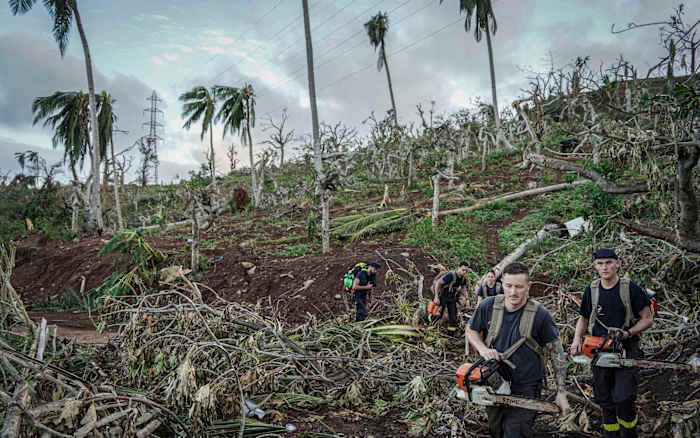Cyclone Chido, the most severe storm to strike Mayotte in nearly a century, has left the French territory grappling with widespread destruction and loss of life. The cyclone made landfall on Saturday, taking the lives of at least 22 individuals and causing massive infrastructure damage.
The Indian Ocean archipelago of Mayotte has been hit harder than ever before, as Cyclone Chido brought unprecedented destruction this week. Entire neighborhoods have been swept away, major infrastructure has suffered severe damage, and trees have been uprooted extensively. This catastrophe marks a historic storm, being the most intense to hit the French territory in 90 years, according to officials.
While Mayotte struggles with the aftermath, climate scientists warn that such severe weather events are occurring with increased frequency and intensity due to human-induced climate change. Experts highlight that the warming of the planet, largely attributed to the burning of fossil fuels such as coal, oil, and gas, is a key factor. This warming has raised average atmospheric temperatures by 1.3 degrees Celsius (2.3 Fahrenheit) compared to pre-industrial times, fueling more powerful cyclones.
Cyclones, akin to hurricanes and identified by this name in the Indian Ocean and Australia, thrive on warm water. Typically forming between December and March, when the region’s waters are at their warmest, these storms gain strength from sea surface temperatures. Cyclone Chido, feeding off ocean temperatures approaching 29 degrees Celsius, exemplified this phenomenon.
The southeastern coast of Africa, including nations such as Malawi, Mozambique, Zimbabwe, and Madagascar, has experienced several destructive cyclones over recent years. Names like Freddy in 2023, Batsirai in 2022, and Idai in 2019 echo the devastation wrought during the southern hemisphere’s summer. Each cyclone, strengthened by warm ocean waters, underscores the increasing vulnerability of this region.
Despite the high frequency of such cyclonic occurrences, African countries face a significant challenge due to inadequate early warning systems. According to the World Meteorological Organization, Africa possesses only 37 radar facilities for weather tracking, a stark contrast to Europe’s 347 and North America’s 291. This deficiency hampers efficient evacuation and preparedness efforts, leaving communities at greater risk when facing devastating weather extremes.
As global initiatives strive to address these challenges, the United Nations launched a venture in 2022 with a goal to provide every person worldwide access to early weather warnings within five years. The World Meteorological Organization’s secretary-general, Celeste Saulo, emphasizes the importance of adapting to climate change, describing it as a necessary step forward.
Mayotte’s encounter with Cyclone Chido serves as a stark reminder of the ongoing threats posed by climate change. The urgent need for improved preparedness, through enhanced early warning systems and global cooperation, stands out as a priority to safeguard vulnerable regions from future disasters.
Source: News4jax








